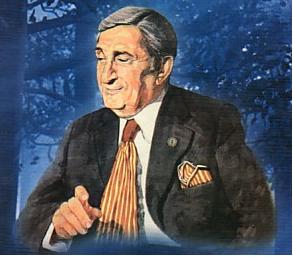
Mohammad Sulayman al-Ahmad (nicknamed Badawi al-Jabal) was born in 1905, in the village of Difa in the district of al-Haffah, Latakia Governorate. His father was well versed in classical Arabic and Islamic studies and a member of the Arab Academy of Language in Damascus. Badawi al-Jabal, his nick name which was given to him by the compiler of his poetry, Midhat Akkash, the editor of the Damascus newspaper Alif Ba, apparently in 1920. Akkash liked the poetry , but because the poet was not well known at that time, the editor(Akkash) agreed to publish the poetry under the pseudonym of Badawi al-Jabal, a reference to the cloak (aba’a) and the headband (oqal) the poet wore at the time – like a badawi (bedouin) coming from al-Jabal.
Badawi al-Jabal gained high reputation in the Arab world; he experienced politics and poetry at prime age. As a nationalist, later,he joined the National Bloc. He was imprisoned by the French mandatory authorities in Syria. In 1939 , he sought refugee in Baghdad. While there, he taught Arabic at the University of Baghdad and also supported the revolt of Rashid Ali al-Kaylani against the British occupation in 1941. Upon returning to Syria, he was apprehended by the French authorities in 1942. Later on, he was twice elected to parliament( 1943 -1947). In the 1950s, he was assigned minister of health. The defeat of the Arabs in the 1967 Arab-Israel War was a great shock to him; he wrote much poetry inspired by it. He adhered to the old school of Arabic literature and poetry, which upholds the classical mode. His poetry was also influenced by a mystical orientation. Selections from his poetry were published in Damascus in 1968 by Midhat Akkash. A full anthology appeared in Beirut in 1978 with an introduction by Akram Zuaytir.
Maysa Wassouf

